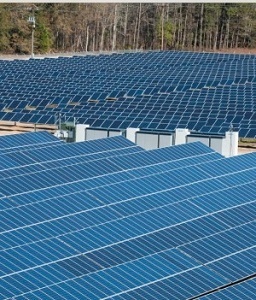In the midst of the controversy over Arizona’s net metering policy, one expert at the Energy and Environment Legal Institute (E&E Legal) suggests several policy reform strategies.
“Costs that are incurred by the grid and (non-solar) customers due to net metering should not be passed on to non-solar customers,” Tom Tanton, director of Science and Technology Assessment at E&E Legal, told Arizona Business Daily recently. “Those costs should, however, be netted out with any grid benefits — e.g. less distribution costs if they occur. In other words, neither group should subsidize the other."
Specifically, net metering allows solar customers to receive a “credit” for the electricity they send to the grid in excess of what they use. The electricity is measured by a meter installed at their homes.
Because solar customers are still using the grid that is maintained by the utilities, some stakeholders and industry watchers contend that net metering can distort balanced markets because it is a “subsidy” paid to users of solar energy.
In turn, utilities — along with consumers and businesses — oppose footing the bill for their neighbors’ use of the grid for their solar panels.
The Tucson Electric Power and Arizona Public Service Co. (APS) have proposed new ways to reimburse net metered customers that would see them collect more in fees from rooftop solar owners to compensate for grid expenses.
The utilities want to implement the changes without going through a full rate review. The Arizona Corporation Commission (ACC) is currently trying to work on a compromise between the solar industry and the utilities.
In fact, earlier this month ACC authorized APS to develop a pilot program to evaluate residential-level energy storage. APS also must propose a program for using energy storage.
The forthcoming study is aimed at exploring technologies that would aid in the management of customer demand, shift load and meeting system requirements, according to the ACC, which said that while data collection will continue through 2017, APS is slated to submit initial reports on benefits and costs by October.
Tanton, in the report "Reforming Net Metering: Providing a Bright and Equitable Future," written for the American Legislative Exchange Council (ALEC), says that net metering forces utilities to buy a wholesale product at retail prices.
The problems aren’t energy or distributed generation, but rather the cost shifting and subsidies.
“The major reform would be to price sale-back at the appropriate rate accounting for wholesale prices minus (transmission and distribution), but corrected for (transmission and distribution) benefits," Tanton said. "Time of use/generation pricing would provide for more accurate pricing and recognize the time-value of generation."
Further, he said that policies should recognize that both benefits and costs vary depending on aggregate amounts with early adopters providing a better net benefit, “albeit not necessarily positive.”
Finally, “net metered customers should generally not be allowed to pancake financial incentives such as state and federal tax credits with net metering rates, as the social benefits would be paid for twice,” Tanton said.
“Another thought is somehow there should be correction for the sometimes deceptive leasing practices of third parties, who end up with liens on peoples’ homes, making it difficult to sell and relocate, especially for elderly,” he said.
To read the ALEC report, go to: www.alec.org.

